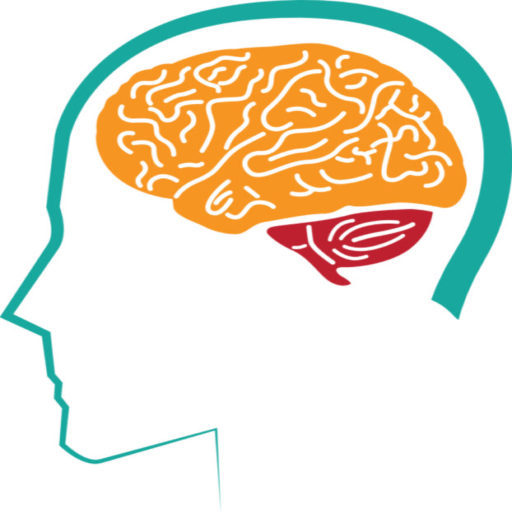Introduction
Schizophrenia is a complex and often misunderstood mental health condition that affects millions of people worldwide. While it’s important to understand the clinical aspects of the disorder, it is equally essential to hear the voices of individuals who live with schizophrenia. In this article, we will share personal stories of individuals living with schizophrenia to increase understanding and empathy. We will explore the challenges they face in daily life and social interactions, as well as how they have overcome stigma and found support.
Personal Stories
Sarah’s Journey
Sarah was diagnosed with schizophrenia in her early twenties. She describes her experience as a constant battle between reality and hallucinations. “It’s like living in two worlds simultaneously,” she says. Sarah’s daily life involves managing medication, attending therapy, and practicing coping strategies she’s learned over the years.
Challenges Faced: Sarah faces significant challenges in social interactions. The fear of judgment often leads her to withdraw from social gatherings. She has lost friends who couldn’t understand her condition. “Stigma is a harsh reality,” she admits. “People don’t see the person behind the diagnosis.”
Overcoming Stigma and Finding Support: Sarah decided to share her story through a blog where she chronicles her journey with schizophrenia. Connecting with others who have similar experiences has been a source of strength. “I’ve learned that I’m not alone, and there’s no shame in seeking help,” she emphasizes.
Mark’s Struggles and Triumphs
Mark was diagnosed with schizophrenia at a young age. He experienced severe paranoia and delusions that made it challenging to trust anyone, even his family. “I felt like the world was against me,” he recalls. “It’s a terrifying feeling when you can’t trust your own thoughts.”
Challenges Faced: Maintaining employment was a significant hurdle for Mark. The stigma surrounding schizophrenia made employers hesitant to hire him. “I’ve faced discrimination, and it’s disheartening,” he says. “But I refuse to let it define me.”
Overcoming Stigma and Finding Support: Mark found solace in peer support groups for individuals living with schizophrenia. Connecting with others who understood his struggles helped him build confidence. Today, he works as a mental health advocate, challenging stereotypes and advocating for increased understanding.
Emily’s Journey of Resilience
Emily’s diagnosis of schizophrenia came as a shock during her college years. She recalls struggling to balance academics with the challenges her condition presented. “I had to learn to forgive myself for not always meeting society’s expectations,” she says.
Challenges Faced: Emily faced significant academic setbacks due to her condition. Friends and professors often misunderstood her behavior. “Sometimes, I’d isolate myself to avoid judgment,” she admits.
Overcoming Stigma and Finding Support: Emily credits her family’s unwavering support for her journey of recovery. She also became involved in advocacy work, sharing her experiences with students and faculty to foster empathy and promote a more inclusive environment on college campuses.
Challenges in Daily Life and Social Interactions
Living with schizophrenia presents a range of daily challenges and impacts social interactions:
- Hallucinations and Delusions: Hallucinations, such as hearing voices, and delusions, such as believing in conspiracies, can make daily life confusing and frightening.
- Medication Management: Consistently taking medication is crucial but can be challenging due to side effects or forgetfulness.
- Social Isolation: Fear of stigma and judgment often leads individuals with schizophrenia to isolate themselves, which can exacerbate feelings of loneliness and depression.
- Employment: Discrimination in the workplace and the symptoms of the disorder can make maintaining employment difficult.
Overcoming Stigma and Finding Support
Overcoming the stigma associated with schizophrenia and finding support is essential for individuals living with the condition:
- Peer Support: Peer support groups and connecting with others who have similar experiences can provide a sense of belonging and understanding.
- Advocacy: Becoming an advocate and sharing personal stories can help challenge stereotypes and educate others about schizophrenia.
- Family Support: Having a supportive and understanding family can be a lifeline for individuals living with schizophrenia.
- Mental Health Services: Accessing mental health services, therapy, and medication management are essential components of treatment and support.
Conclusion
Personal stories of individuals living with schizophrenia provide insights into the daily challenges they face and their resilience in overcoming stigma. It is crucial to listen to and empathize with their experiences to foster a more compassionate and understanding society.
By acknowledging the strength and courage of those who live with schizophrenia and by promoting awareness and support, we can contribute to reducing stigma and creating a world where individuals with schizophrenia are accepted and embraced for who they are beyond their diagnosis.
References
- National Institute of Mental Health. (2023). Schizophrenia. https://www.nimh.nih.gov/health/topics/schizophrenia/index.shtml
- Mental Health America. (2023). Schizophrenia. https://www.mhanational.org/conditions/schizophrenia
- National Alliance on Mental Illness. (2023). Schizophrenia. https://www.nami.org/About-Mental-Illness/Mental-Health-Conditions/Schizophrenia
- Rethink Mental Illness. (2023). Schizophrenia. https://www.rethink.org/advice-and-information/about-mental-illness/learn-more-about-conditions/schizophrenia/
- Schizophrenia and Related Disorders Alliance of America. (2023). https://sardaa.org/

